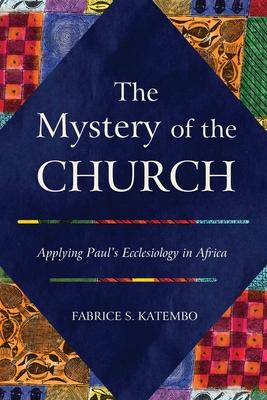The Pauline epistles are filled with beautiful and provocative metaphors for the church: it is a bride, a body, a flock, a temple. Each of these metaphors emphasizes the central unity and indivisibility of the people of God. Yet how do Christians live out this unity in the face of ethnic conflict, tribalism, and political divisions? In this powerful application of Paul's teaching, Fabrice S. Katembo explores the mystery of the church in an African context, arguing that the greatest challenge facing God's people is not external threat, but internal discord. Katembo draws his reader's attention back to the unifying work of Christ, who died to abolish all walls of separation and in whom we are one, no matter the tongue, tribe, or nation. Providing an overview of Paul's life and ministry, and engaging the work of renown theologians such as John Mbiti and Kwame Bediako, this is an excellent resource for anyone facing intercultural tensions within the church. It is also a vital reminder that far from harmless, divisions between believers threaten to cripple the body of Christ by distorting its witness, injuring its members, and separating what Christ died to unify.

The Mystery of the Church: Applying Paul's Ecclesiology in Africa
The Pauline epistles are filled with beautiful and provocative metaphors for the church: it is a bride, a body, a flock, a temple. Each of these metaphors emphasizes the central unity and indivisibility of the people of God. Yet how do Christians live out this unity in the face of ethnic conflict, tribalism, and political divisions? In this powerful application of Paul's teaching, Fabrice S. Katembo explores the mystery of the church in an African context, arguing that the greatest challenge facing God's people is not external threat, but internal discord. Katembo draws his reader's attention back to the unifying work of Christ, who died to abolish all walls of separation and in whom we are one, no matter the tongue, tribe, or nation. Providing an overview of Paul's life and ministry, and engaging the work of renown theologians such as John Mbiti and Kwame Bediako, this is an excellent resource for anyone facing intercultural tensions within the church. It is also a vital reminder that far from harmless, divisions between believers threaten to cripple the body of Christ by distorting its witness, injuring its members, and separating what Christ died to unify.